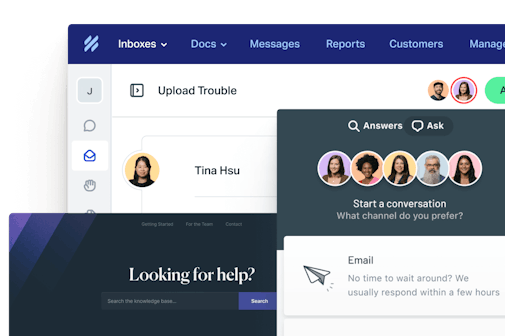There’s no silver bullet that works for every customer question or complaint.
But when it comes to letting your customers down - whether it’s a system outage, a bug, or a feature you’re never going to add - there are guiding principles that will help you maintain their faith in your company and product.
To show how we tackle these challenges at Help Scout, I’m teaching Leah on our People Ops team about those guidelines.
Lesson 1: Saying no to a feature request
Customer service and support reps are all too familiar with the discomfort of telling customers that the feature they really need isn’t a priority or may never happen at all.
When you’re thinking about how to respond, start by asking yourself the following:
Is it on-brand for your company?
Will it be useful for more than just this customer (or a handful)?
Is it consistent with your company’s product vision?
Lesson 2: Product/service outages
Outages and service interruptions are inevitable. But tough days like these can also be an opportunity for support teams to shine a positive spotlight on their company by providing empathetic, informed, and speedy replies.
In order for support teams to offer this level of service, they need regular updates from the product team. Good internal communication is essential to achieving this level of service during an outage. That means giving them a direct line to the product team and providing regular updates, so they can get ahead of problems and keep your customers informed. If your support team is in the dark during outages, it’s time to address your internal processes to make sure they have the right resources to manage customer communication.
Lesson 3: Bugs we’re not going to fix ... yet
It’s always frustrating when a customer runs into a bug in your product. But it’s even harder when it’s an obscure bug that your company is not going to prioritize. If something can’t get fixed right away, it's crucial to explain the why and offer potential workarounds.
For more customer support training moments with me and Leah, check out our first Support 101 "lesson" in Taking the Right Tone.







